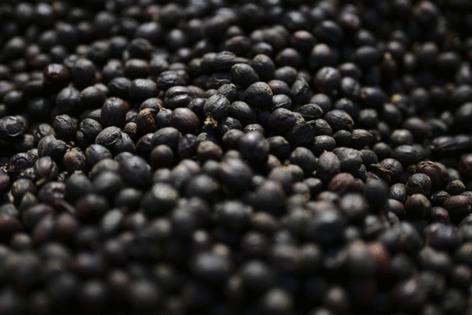Trump deepens tariff cut on Brazilian foods as prices mount
Published in Business News
President Donald Trump is expanding tariff breaks for Brazilian food products, widening the scope of relief from import taxes amid growing U.S. voter dissatisfaction over the cost of living.
An executive order Trump signed on Thursday would exempt dozens of popular food items from a 40% levy he imposed on goods from Brazil earlier this year. Last week, the president knocked a separate 10% duty off those items, but did not originally include the higher rate, which was intended to punish the country over its prosecution of former President Jair Bolsonaro.
The changes are retroactive to Nov. 13. Brazilian President Luiz Inacio Lula da Silva hailed the decision at the Sao Paulo auto show on Thursday night following the announcement.
“Today I’m happy, because President Trump has already started to reduce some of the tariffs levied on some Brazilian products,” he said.
The decision could help bring down prices of coffee, orange juice and beef in particular, providing a salve for Americans who have struggled under the strain of high grocery bills and given Trump’s increasingly poor marks over his handling of the economy.
Brazil is the world’s largest exporter of coffee and beef. Prior to the implementation of tariffs, it was the largest supplier of coffee to the U.S. Shipments of Brazilian beef to the U.S. had also been increasing before the levies, due to a cattle shortage that had affected the North American industry.
Tariffs on those items from Brazil, a major South American agricultural power, have exacerbated ongoing shortages in both markets that pushed consumer prices to records. The pullback is a significant victory for Lula, whose government has long sought to persuade Trump to drop the duties.
“Diplomatic and friendly relations between Brazil and the U.S. were reestablished the moment the two leaders sat down and talked, with no topics off limits,” Carlos Fávaro, Brazil’s minister of agriculture, told Bloomberg.
“The American and Brazilian people both benefit. The Americas benefit since its two largest powers are once again working in convergence,” he said.
Brazil has faced 50% levies for months after Trump hiked them beyond his 10% across-the-board tariff as part of an effort to stop the trial of Bolsonaro, a Trump ally, on coup attempt charges.
Fávaro said that “those who tried to stir up intrigue or gossip were left aside,” and that priority was given to the more than 200-year relationship between the two countries. He did not mention by name Eduardo Bolsonaro, a Brazilian congressman and the son of the former president, who lobbied Trump to intervene in the case.
High-level talks between the two countries restarted after Trump and Lula briefly crossed paths in New York in September. The two leaders met last month in Malaysia, where Lula asked Trump to lift duties and remove sanctions on Brazilian officials. The leftist leader said afterward that he expected a “definitive solution” with the U.S. soon.
Unlike many of Trump’s tariff targets, Brazil typically runs an annual trade deficit with the U.S., a point Lula has repeatedly stressed.
The move was greeted warmly by the Brazilian Beef Exporters Association and Marcos Matos, director general of coffee exporters group Cecafé.
“We are celebrating,” said Matos. “All we wanted was to create isonomy, especially after the order on reciprocal tariffs.”
Matos said roasters in the U.S. engaged in talks for an exemption for Brazilian coffee and added that the involvement of the Brazilian government was key to create a “good context” for both countries.
Thursday’s move is the latest administration effort to address affordability concerns for American households following elections earlier this month in which Republicans lost a number of high-profile contests with worries about the cost of living front and center. The shift also offers a tacit acknowledgment that the president’s sweeping tariff agenda has helped fuel price pressures on consumers.
Administration officials have defended the tariff exemptions as in line with Trump’s broader strategy, saying the president is merely targeting carve-outs for products that are not produced in sufficient quantities domestically after securing trade deals with major partners.
“What happened is the president said, look, it’s been six months. It’s time. Let’s just wipe the slate clean. If people haven’t made deals with these smaller countries, it’s okay. Let’s cut the price on all these unavailable natural resources, and let’s focus on affordability,” Commerce Secretary Howard Lutnick said in an interview earlier Thursday on Fox Business Network.
“The president’s going to focus on the small things that touch the Americans’ pocketbook, and he’s going to bring them all down,” Lutnick added.
(With assistance from Meghashyam Mali, Dayanne Sousa, Travis Waldron, Ney Hayashi, Romy Varghese and Daniel Carvalho.)
©2025 Bloomberg L.P. Visit bloomberg.com. Distributed by Tribune Content Agency, LLC.












Comments